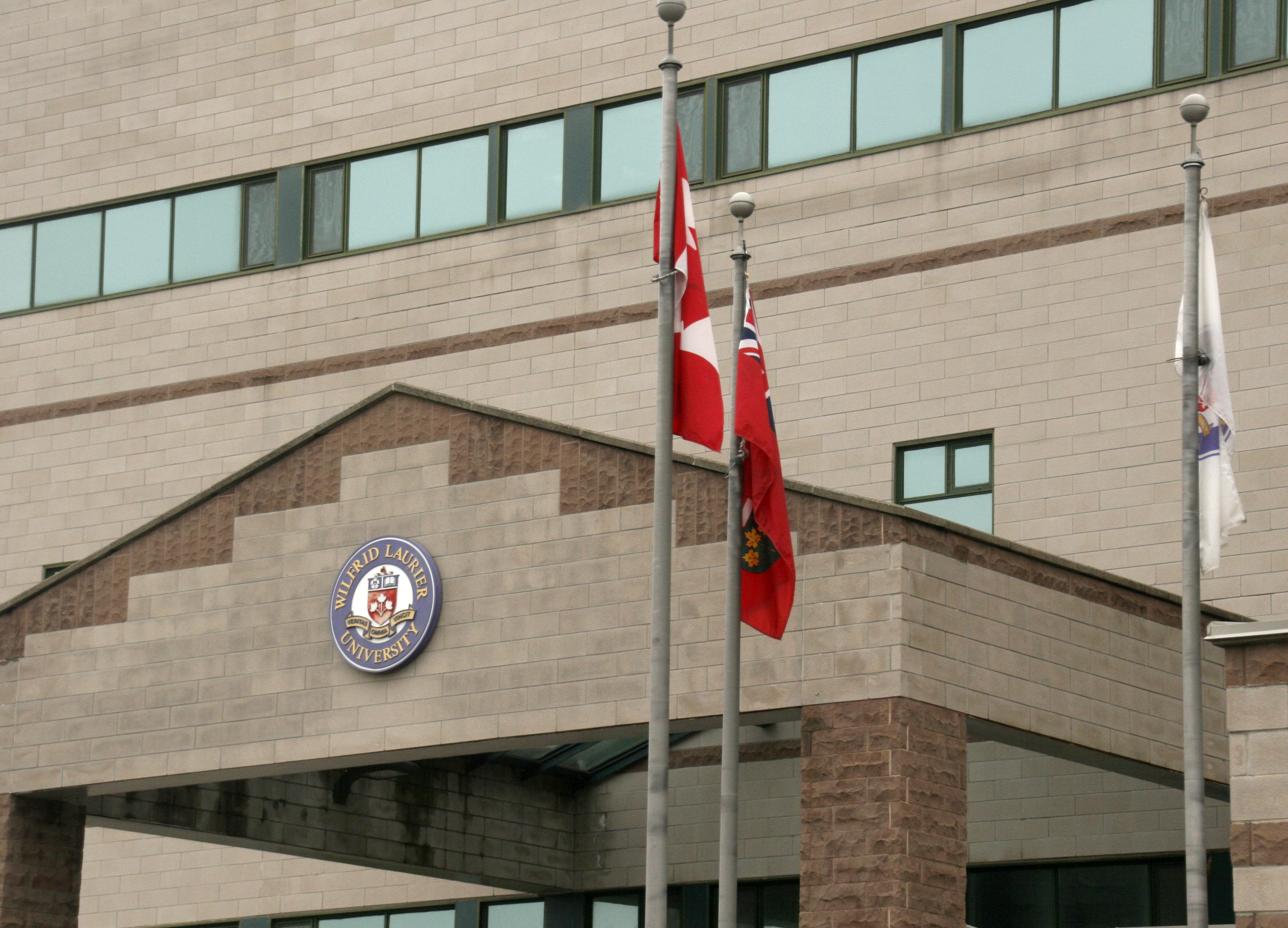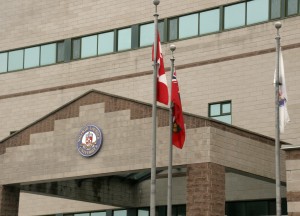Laurier students send an open letter to administration on gendered violence


Wilfrid Laurier University students Cassandra Mensah and Ethan Jackson, along with many of their colleagues, are worried about the campus and its students — and they really want the university administration to listen.
On December 6, Jackson and Mensah, with the support of current students and alumni, penned an open letter to the university administration and its student leaders on their concerns about sexual assault — and the university’s prevention measures — on campus. They addressed the notions around gendered violence, the gaps in the training and education of students and staff and their suggestions for the future in the letter.
“There is violence and trauma happening behind closed doors which needs to end. The violence we are discussing is the overwhelming instances of sexual assaults happening on and around our university campus,” the letter read.
Commenting on Laurier’s current policies and efforts to prevent sexual assault, the letter stated, “This is not enough in the active prevention of sexual assaults because it lacks the components of factual education and accountability.”
In an interview with The Cord, Jackson noted that he hopes the letter ignites an open discourse on campus about gendered violence and that new measures are put in place so that staff, faculty and students are well educated on the issue.
“It’s kind of victim-blaming by pushing the buddy system and [telling students to] walk in well-lit areas. And that’s just not enough,” explained Jackson, a fourth-year women and gender studies and cultural studies student at Laurier. “We want the administration to recognize the things that are falling through the cracks.”
According to Jackson, the idea for the letter was sparked due to many of his fellow students sharing their experiences in a women’s studies class. Jackson noted some other examples that he has heard, including a situation two years ago with an O-Week icebreaker.
“A friend was assaulted in silence because of an ice breaker. They then went to somewhere within the WLUSU organization and they said to not report it because it’ll look bad for the university,” said Jackson. “That’s a physical awareness of silencing someone. That can’t happen.”
After the letter was sent out on Dec. 6, Waterloo campus dean of students Leanne Holland Brown, along with Wilfrid Laurier University Students’ Union president Annie Constantinescu, met with Jackson and two of his colleagues to discuss the letter and find ways to move forward.
“It was refreshing to hear an honest student perspective on it. It’s a topic that isn’t discussed that openly or honestly, [and] this was able to put all of the concerns out there,” Constantinescu said about the letter.
But both Holland Brown and Constantinescu believe that improvements can be made. One of the concerns was the way in which a student can report a crime or an incident. The letter also stated that the current reporting system on Laurier’s website “has not been updated since 2009 and does not work.”
“I think it’s fair to say there’s a need for improvement, but I think in the entire world community there’s room for improvement on any social issue,” said Holland-Brown, noting that there’s specifically a need for “enhanced training.”
She added about the letter that, “there were some really great points raised around the mechanisms for students to be able to report concerns and how those are being monitored or responded to.”
Jackson explained that Laurier’s Wellness Hub, which is being set up to address mental health initiatives, will also be open for students to report concerns they have in regard to sexual assault and health, as well as gendered violence.
Adam Lawrence, the dean of students at the Brantford campus and a former employee of the Waterloo campus, felt that the letter has really put a spotlight on the discussion. While he’s planning on meeting with Ethan in the new year, Lawrence believes that this letter is what Laurier need to further improve their services and methods.
“I think we do a lot of great things when it comes to the ‘black and white.’ We have training in place … we work closely with the Sexual Assault Support Centre and the Sexual Assault Support Team,” he explained, adding that the university is also currently involved in the Change Project, a collaboration between WLU, the University of Waterloo and community groups that targets gendered violence
“[But] there are these grey areas maybe that we don’t do a good job in. And because of that we are silencing some people who don’t feel they don’t want to go through the reporting structure or to go through the methods that we have created.”
Laurier will continue to be involved in the Change Project — which incorporates 19 universities across the country — and is “working to address gaps… and really look at what we need to do as an institution to respond to acts of gendered violence to educate our students,” said Lawrence.
Lawrence also noted that the university — Laurier Athletics in particular — is working on a masculinity campaign to address the ideas and impacts of masculinity within Laurier’s male sports teams, a program that is mirrored off a conference that Lawrence and Peter Baxter, the director of Laurier Athletics, attended at Ryerson University.
The nearly 2,000-word document outlined other concerns about sexual assault and gendered violence, especially around the “silencing” that has happened from both the administration and student leaders. As a result, the letter calls for those who actively “silence” an act of gendered violence to be penalized in one way or another.
“I do think that student leaders should be held to a higher regard … whether or not they should be penalized, I think that’s moving in a direction that is very different from any sort of rehabilitating type of system,” said Constantinescu.
However, it’s not just the silencing that Jackson and many of his colleagues have an issue with, but also the perpetuation of “rape myths” on university campuses —something that can be also eradicated with education.
“People assume that the only type of rape — the legitimate type of rape — is a violent assault, which is completely untrue,” Jackson continued. “Because sexual assault is a wide range of discourse, a lot of people don’t understand what consent is and that is a huge lack of information that a lot of students have.”
“But especially normalizing of rape or the instances of rape, like saying, ‘that test raped me.’ That’s problematic,” he stated.
However, to Jackson, the impact of this letter is evident and the discussion is already taking place. He is very optimistic about the discussion moving forward.
“I already see it, they’re talking. It’s not just students and faculty anymore, but also administration and community members, especially alumni,” said Jackson. “We want to build together to create change.”
——–
You can read the letter in its entirety below:

